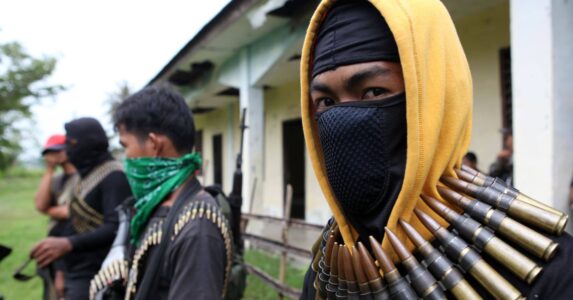
Islamic State and al-Qaeda terrorists pose significant threat to South Asia
Local media citing the report said the UN has estimated a total number of al-Qaeda fighters in Afghanistan at between 400 and 600.
In addition, the UN has reported on the strong presence of Islamic State-India in Kerala and Karnataka.
The UN report shows that the leader of the Tehreek-e-Taliban terrorist group was recently added to the sanctions list of the UN Security Council Sanctions Committee, while intensifying the movements of terrorist elements in the subcontinent and surrounding countries.
“Foreign terrorists, including members of the Taliban, who have secret bases inside Afghanistan, pose a serious threat to both Pakistan and Afghanistan,” the report said.
The Tehreek-e-Taliban Pakistan (TTP) has become a new concern for Pakistani political and military leaders in recent years.
The UN report also indicates a significant presence of Daesh terrorists in the states of Kerala and Karnataka in India.
In addition, members of the al-Qaeda are operating under the umbrella of the Taliban in Nimrooz, Helmand and Kandahar provinces of Afghanistan.
The United Nations has warned that in addition to Daesh movements, al-Qaeda-linked terrorists from the subcontinent, numbering between 150 and 200, are planning operations in South Asia.
Last year, Daesh claimed to have established a province in India known as the Province of India, while clashes between Indian security forces and terrorists in some parts of the country, including Kashmir, had entered a new phase.
In addition, the Takfiri group Daesh has claimed responsibility for a suicide attack on an Afghan Sikh temple in Kabul on April 26, 2020, while the suicide bomber was said to be of Indian descent.
Five days after the terrorist attack, ‘The Indian Express’ reported that one of the main perpetrators of the attack on the Sikh temple in Kabul was an Indian member of Daesh terrorist group.
The movements of Daesh elements in Pakistan have also increased in recent months, despite the denial by Pakistani officials that there were no traces of the takfiri group in the country.
In late December last year, Daesh claimed responsibility for a suicide bombing in Quetta, the capital of Pakistan’s Balochistan province, which killed at least 15 people and wounded 20 others.
Pakistani government and security officials have always denied the existence of Daesh and even the footprints of their accomplices in the country, while the Pakistan Counter-Terrorism Department announced on May 28 that four Daesh terrorists had been killed in Punjab.
Source: IRNA





